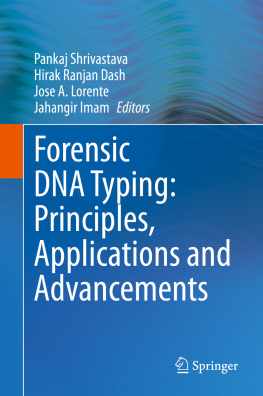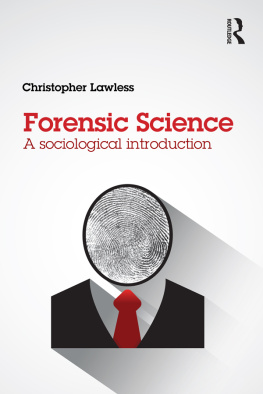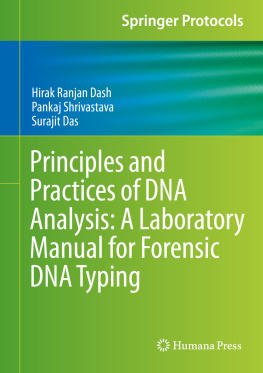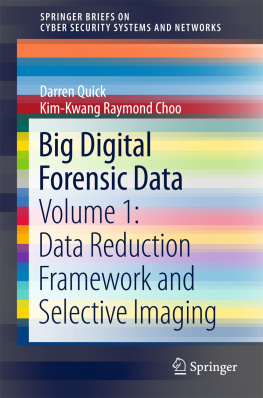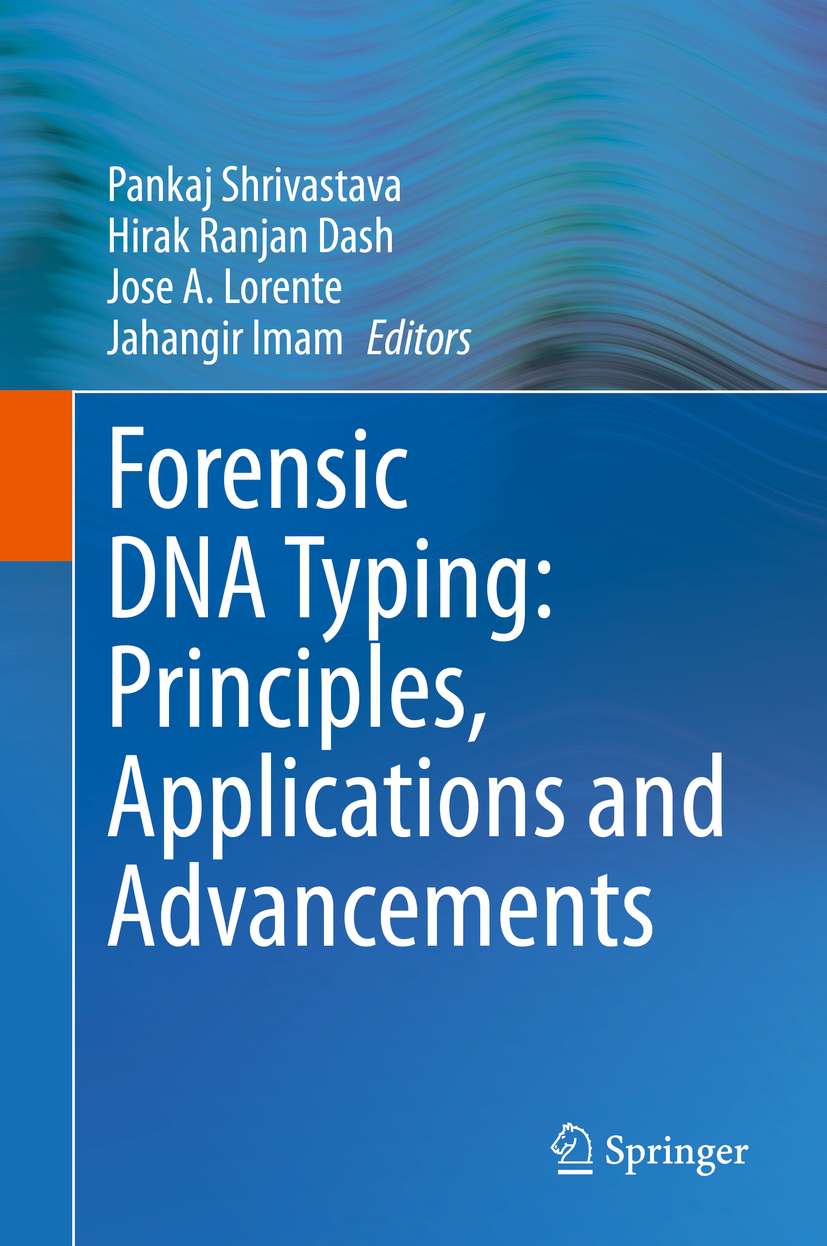Pankaj Shrivastava - Forensic DNA Typing: Principles, Applications and Advancements
Here you can read online Pankaj Shrivastava - Forensic DNA Typing: Principles, Applications and Advancements full text of the book (entire story) in english for free. Download pdf and epub, get meaning, cover and reviews about this ebook. City: Singapore, year: 2021, publisher: Springer Singapore, genre: Science. Description of the work, (preface) as well as reviews are available. Best literature library LitArk.com created for fans of good reading and offers a wide selection of genres:
Romance novel
Science fiction
Adventure
Detective
Science
History
Home and family
Prose
Art
Politics
Computer
Non-fiction
Religion
Business
Children
Humor
Choose a favorite category and find really read worthwhile books. Enjoy immersion in the world of imagination, feel the emotions of the characters or learn something new for yourself, make an fascinating discovery.
- Book:Forensic DNA Typing: Principles, Applications and Advancements
- Author:
- Publisher:Springer Singapore
- Genre:
- Year:2021
- City:Singapore
- Rating:3 / 5
- Favourites:Add to favourites
- Your mark:
Forensic DNA Typing: Principles, Applications and Advancements: summary, description and annotation
We offer to read an annotation, description, summary or preface (depends on what the author of the book "Forensic DNA Typing: Principles, Applications and Advancements" wrote himself). If you haven't found the necessary information about the book — write in the comments, we will try to find it.
The book explores the fundamental principles, advances in forensic techniques, and its application on forensic DNA analysis. The book is divided into three modules; the first module provides the historical prospect of forensic DNA typing and introduces fundamentals of forensic DNA typing, methodology, and technical advancements, application of STRs, and DNA databases for forensic DNA profile analysis.
Module 2 examines the problems and challenges encountered in extracting DNA and generating DNA profiles. It provides information on the methods and the best practices for DNA isolation from forensic biological samples and human remains like ancient DNA, DNA typing of skeletal remains and disaster victim identification, the importance of DNA typing in human trafficking, and various problems associated with capillary electrophoresis.
Module 3 emphasizes various technologies that are based on SNPs, STRs namely Y-STR, X-STR, mitochondrial DNA profiling in forensic science. Module 4 explores the application of non-human forensic DNA typing of domestic animals, wildlife forensics, plant DNA fingerprinting, and microbial forensics.
The last module discusses new areas and alternative methods in forensic DNA typing, including Next-Generation Sequencing, and its utility in forensic science, oral microbes, and forensic DNA phenotyping.
Given its scope, the book is a useful resource in the field of DNA fingerprinting for scientists, forensic experts, and students at the postgraduate level.Pankaj Shrivastava: author's other books
Who wrote Forensic DNA Typing: Principles, Applications and Advancements? Find out the surname, the name of the author of the book and a list of all author's works by series.

